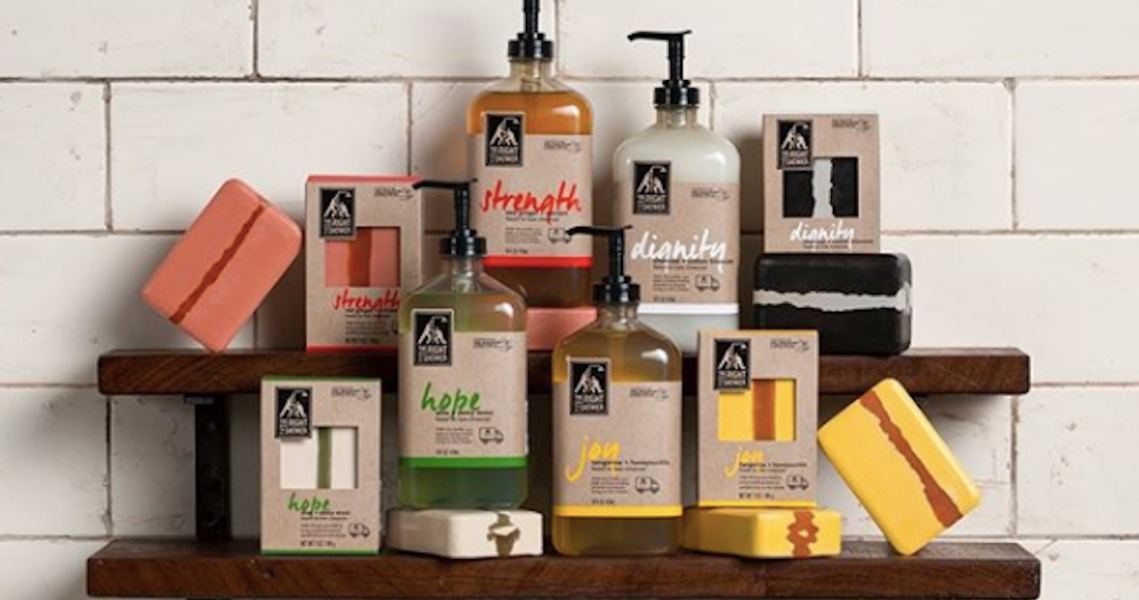Unilever’s latest brand, The Right To Shower, is a collection launched in March of eight head-to-toe cleansers and soaps named Dignity, Hope, Joy and Strength. Unilever is promising that 100% of the brand’s profits in its first year of business will be donated to mobile shower initiatives to serve the homeless population.
“We consider Unilever as a company of purpose, and we want our brands to be seen with that same purpose,” said Laura Fruitman, co-founder and gm of The Right To Shower. “We knew this issue of homelessness existed, and we wanted to flip the idea of social good by baking it into the brand, rather than start with an issue we wanted to solve.” According to the U.S. Department of Housing and Urban Development, more than 550,000 Americans experience homelessness and don’t have regular access to shower spaces.
This seems to be in line with broader trends. “By and large, purpose is seen as a given for brands today, so it is increasingly important for brands to raise the bar for what it means, and that’s clearly what Unilever is doing,” said Chris Allieri, founder and principal of Mulberry & Astor, a branding consultancy firm. “Gone is the day that purpose is marketing-led; it needs to be about actions.”
Unilever, which is the second-largest beauty and personal-care company after L’Oréal, saw nearly 3% sales growth in 2018 fiscal results to more than $13 billion. New CEO Alan Jope called out “purpose-led brands” as a growth opportunity for 2019 in those earnings. The Right To Shower, which was a two-year project, was incubated in-house, much like the company’s sustainable brands, including Love Beauty and Planet and Love Home and Planet, which debuted in January 2018 and January 2019, respectively.
Considering Unilever will be donating all of The Right to Shower’s profits to organizations like Lava Mae, which works with local governments create mobile showers, Fruitman explained that the brand is built as a “social-enterprise” for Unilever and is a new kind of model for the conglomerate. Since Lava Mae’s debut in 2013, the organization has provided 60,000 showers to more than 15,000 people. Through its replicator program, which trains other organizations how to build mobile showers, The Right To Shower’s initiative will be present in Dallas, Baltimore, Charlotte and Brooklyn.
Fruitman said it was also intentional for the brand, and its body wash and soap products themselves, to be directly correlated to the experience that customers would be supporting: mobile showers.
Forging its physical retail partnerships with Amazon and Whole Foods was strategic from a brand awareness perspective, versus developing a direct-to-consumer selling strategy to start, said Fruitman. (The Right To Shower is Unilever’s first homegrown brand to appear in its stores — others like Schmidt’s Naturals and Shea Moisture were acquired brands.) For now, TheRightToShower.com is solely being used as a storytelling vehicle for the brand and to call attention to homelessness.
Ad position: web_incontent_pos1
Though Unilever would not provide initial sales reads of the brand, Allieri said he expects the company’s efforts to have ripple effects throughout the beauty and personal-care industry. “Companies need to be caught in the act of doing the right thing,” he said. “When the product, the marketing, the channels and the call-to-action actually work together, other brands will absolutely take notice and want to take a stand.”
Sign up for our new Glossy Beauty and Wellness Briefing, a weekly newsletter coming in April that will provide deep-dive analyses, emerging trends and insider insights in the growing beauty and wellness industries.




